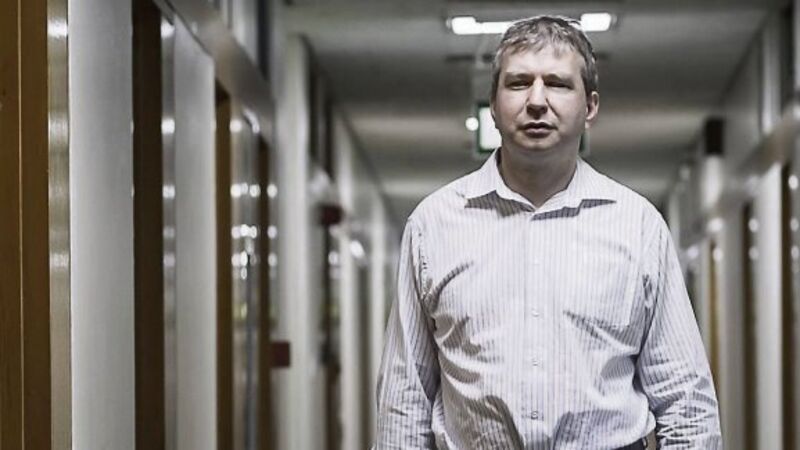The organisation that helps people who have disabilities to get AHEAD

We’re all half-trained to cope with a dog that has a squared-off leash-substitute and which assists an owner who has a disability, be it blindness or autism, or some other challenge. We know, for example, that you’re not supposed to pet a working dog. At an AHEAD (the Association for Higher Education Access and Disability) conference in Farmleigh, where we met Louis Watters’ dog, we murmured wisely to each other that we shouldn’t stroke it, even though the dog had a hide as furry as a teddy bear and that retriever air of innocent nobility.
Posing for photographs, we revealed ourselves to be embarrassingly less competent than the dog. The photographer lined us up, Louis sitting in front with other conference speakers, the dog on the ground in front. I was behind with three others. Neat as you please. “Look at the camera,” Louis said crisply, and, I swear to God, every one of us looked AWAY from the camera to see if the dog obeyed instructions. Which, of course, it did. The photographer’s first shot, therefore, must have shown one disciplined dog looking fearlessly into the camera lens and seven humans looking gormlessly at the dog.















